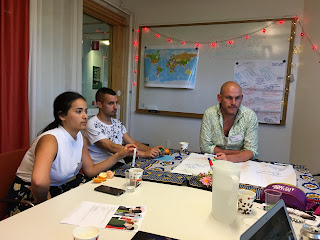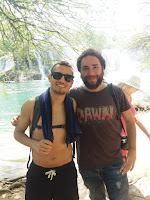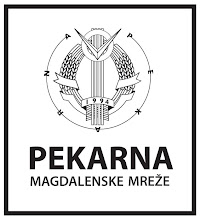From 28th to 30th of May of 2018, I participated in the thematic working group on gender equality and LGBT+ rights in the frame of Becoming a part of Europe project, a project co-funded by the Erasmus+ program and promoted by a partnership of Erasmus+ National Agencies from eight countries: Belgium, Germany, Italy, Malta, Portugal, Slovenia, Sweden and The Netherlands. The project itself started in December 2016 and will end in December 2019, having had already more thematic groups in this period.
The topic we addressed was how youth work and workers can support young migrants, refugees and asylum seekers. The purpose was to share non-formal education methodologies and new inclusion practices to promote and improve integration and social inclusion of these group of people and to promote understanding, tolerance and respect among the society.
We divided the working in 3 themes or seminars, the first and the second happening on the 29th of May and the third in the last day.
Seminar 1: Sharing good practices.
We introduced our hosting organisations and we talked and discussed about our common strengths, weaknesses, opportunities and threats that can affect our work when it comes to young migrants, refugees or asylum seekers. After, with the aim of identify best practices of youth work in the field of integration and social inclusion of young migrants, refugees and asylum seekers, giving value to youth work as an instrument for integration of new comers, through informal and non-formal education activities. We tried to specify methodologies, initiatives and activities we use in our daily work and how they help us to achieve our objectives and how they can be useful to reach our target group.
Seminar 2: Creating policy recommendations for the EU Commission.
Through some methods – like the World Café – we tried to come up and to do a brainstorm of ideas and new practices of youth work in the field of integration and social inclusion of young migrants, refugees and asylum seekers to build up new capacity and improve youth workers’ skills and competences. With the help of some lawyers that work in the field of Migration and Asylum, the idea was to create a report based on our outcomes related to YMRA group, that include recommendations to change the EU policies, the asylum process, the Qualification Directive of the European Common Asylum System, the Reception system and conditions and the EU policy on migration and integration.

Seminar 3: Youth workers learning needs.
The third and last seminar consisted in involving and including the youth workers in the recommendations formulated for the EU Commission, identifying our needs regarding to this work and how can it be changed.
The project, meeting and seminars were incredibly useful and interesting, because all of us were able to collect new practices and share our methodologies in youth work regarding to integration and inclusion, to hear about life stories of young migrants, refugees and asylum seekers involved in local, national or European projects and initiatives and to think of and launch new recommendations to improve the policies we have nowadays related to YMRA group in the European Union.
The outcomes and results of this working group will be summarized and put together into a report, and later on, in September they will be presented and discussed in a conference that will take place in Slovenia.
Rafa


























































